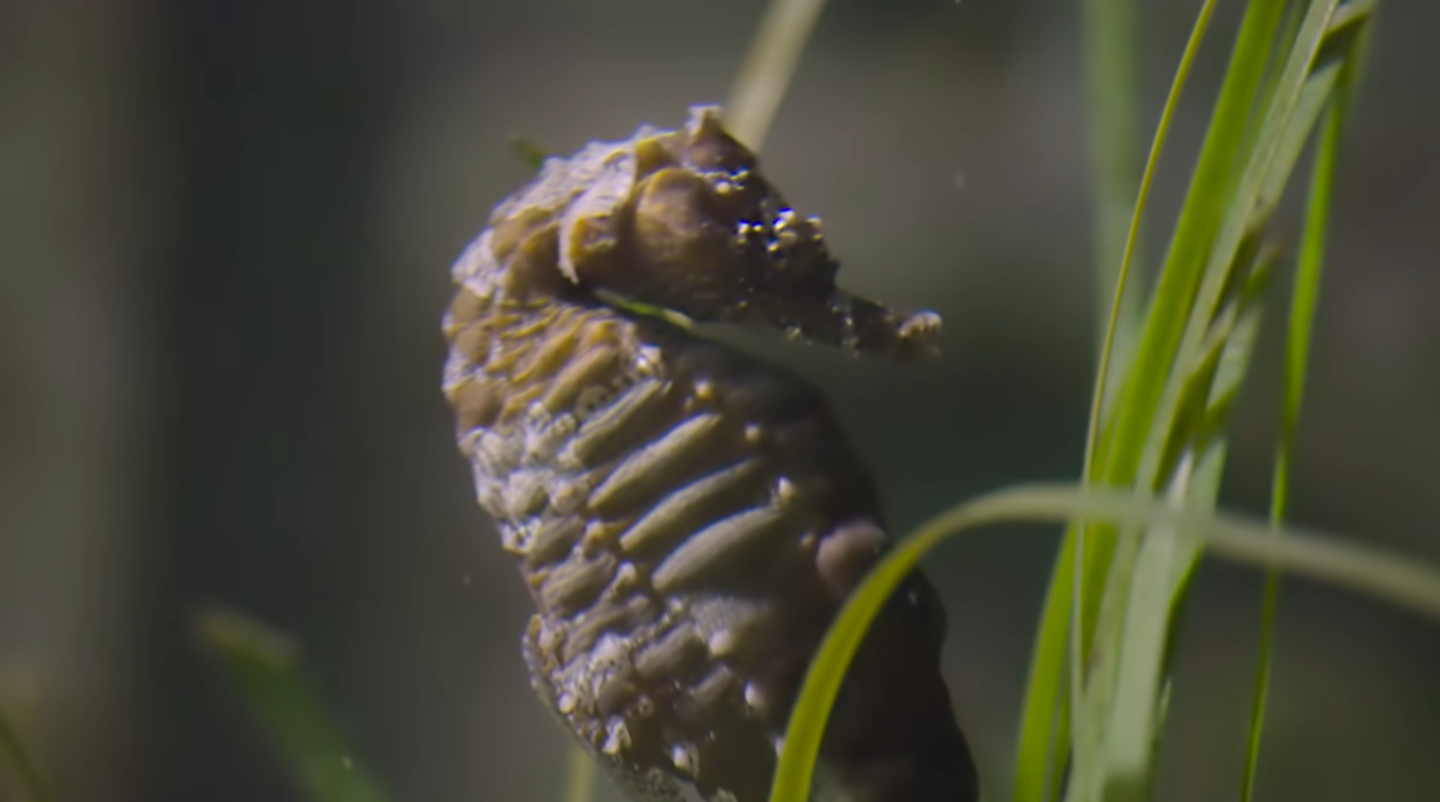Seahorse review: Trans dad’s birth story is a moving account of love and family

Seahorse is in cinemas August 30. (Seahorsefilm.com)
Freddy McConnell is a gay trans man and Guardian journalist who chose to suspend his hormone treatment to carry his own baby. He is a “seahorse dad.”
The new documentary Seahorse, by the BBC in association with the Guardian and directed by Jeanie Finlay, follows McConnell over three years, from trying to conceive to eventually giving birth.
The film banishes the myth that a trans person is made infertile by taking hormones, although this can sometimes be the case.
When McConnell first stops taking testosterone as he prepares to conceive, I found myself holding my breath, getting ready for his world to immediately fall apart. But his sense of himself and of being a man doesn’t implode after the first missed injection.

Freddy McConnell is a “seahorse dad.” (Jeanie Finlay/ YouTube)
At first, he describes being more emotional and more easily able to discuss his feelings as “enjoyable.” In a moment of juxtaposition, he appears completely himself as he walks into the “London Women’s Clinic.”
As the weeks go on, however, cracks begin to show. A month in, he describes his loss of appetite, loss of libido and a sense of being “soft,” and the experience goes from “enjoyable” to “24/7 discomfort.”
The accidental co-star of the documentary is McConnell’s mother Esme, accurately described as a “force of nature.” She is the glue that holds him together through the whole process, beautifully strong and matter-of-fact.
As the effects of being without hormone therapy continue to get stronger and his pregnancy progresses, we see McConnell’s hold on his identity begin to slip. This is matched with home video clips of his childhood, showing the increasingly blurred lines between now and then.
At one point he muses that a process that his body is capable of should feel natural, and yet he says: “I feel like a man who is doing something really odd,” and later “I feel like a f****** alien.”
He says it doesn’t feel like a pregnancy, but “a fundamental, total loss of myself.”

Freddy McConnell temporarily gave up taking testosterone to carry his own baby. (Jeanie Finlay/ YouTube)
But despite the obstacles he faces, the film is not about McConnell being trans and giving birth. It is about family, or as director Finlay puts it, “it is a love story about all different kinds of relationships.”
McConnell’s journey to become a father is complicated, heartwarming and frustrating, but what is glaringly obvious is how natural it is.
Finlay interweaves animal symbolism throughout Seahorse; there are, of course, quite a few seahorses, but also nesting birds and frogs laying eggs that become tadpoles, reminding us how many routes to parenthood there are in the natural world.
McConnell is shown in water multiple times throughout the film – at the beach in his hometown of Deal, in Spain on holiday and eventually in a birthing pool at the hospital – and this image sticks with you.
He is a part of nature like anyone else, he is a parent like any other parent, and his baby will be like any other baby. In his words: “I’m just using my hardware to do a thing.”
Seahorse is in cinemas August 30.

